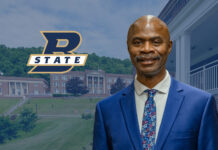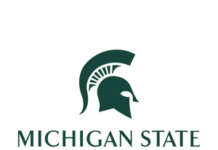 Virginia Polytechnic Institute and State University in Blacksburg has recently launched a new website that summarizes the findings and analysis of a group of students who researched the historical archives of a group of newspapers to examine African Americans’ sentiments towards Independence Day over the years.
Virginia Polytechnic Institute and State University in Blacksburg has recently launched a new website that summarizes the findings and analysis of a group of students who researched the historical archives of a group of newspapers to examine African Americans’ sentiments towards Independence Day over the years.
“These are newspapers for and by African Americans,” said Brett Shadle, the professor who taught the introductory history course in which the project was conducted. “These are the conversations African Americans had among themselves about what their politics should be, what their patriotism should be, and what their role is in the United States.”
For the project, Professor Shadle’s students transcribed more than 400 articles written between 1865 and 1988, including those from the Arkansas State Press (1941-1959), the Baltimore Afro-American (1893-1988), the Chicago Defender (1921-1968), the San Francisco Elevator (1865-1874), the Savannah Tribune (1876-1922), the Washington Bee (1883-1922), and the Wichita Negro Star (1920-1952). The newspapers were selected for their timelines; to ensure representation of viewpoints from the Civil War through the civil rights era.
The students were broken into eight groups, each centered on one newspaper and time period. Each student focused on a five-to-ten-year time period and searched for articles related to the Fourth of July. They then transcribed the articles and added keyword tags. After that, the groups shared their conclusions with each other to spot overall trends and themes.
“We can actually see the same arguments, the fight for rights, threading through the different periods,” said Professor Shadle, who is also chair of Virginia Tech’s department of history. “The Fourth of July during Reconstruction was generally positive because the people are now free, and they seem to have opportunities — they can vote, and many of them hold office in the South. It’s a time of hope and possibility, and the newspapers reflected that hope.”
However, the students found that during the Jim Crow years, between the end of Reconstruction in 1877 and the beginnings of the civil rights movement in the 1950s, the newspapers reflected an opposite response.
“The holiday seemed like a mockery,” Professor Shadle said. “The day’s ideals were great, but not a reality for African Americans. People wanted to talk about life and liberty, but at the same time lynchings were taking place. So, they could celebrate the ideals, yet mourn their ongoing political exclusion.”
The website, “African American Fourth of July,” may be accessed here.









